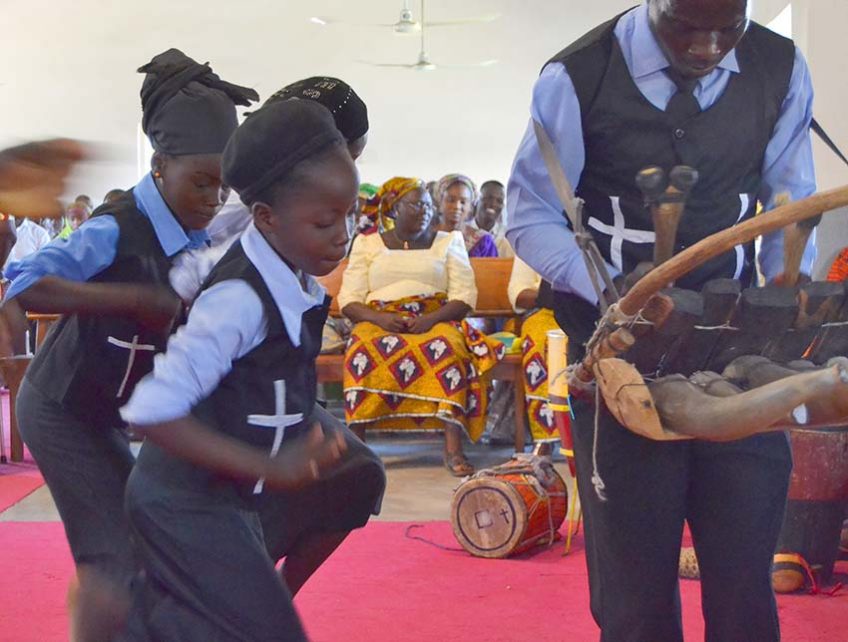A visit to Nigeria last November took me home again, to the land of my birth. I was born to Church of the Brethren mission workers in Nigeria, and I grew up there, but it had been 31 years since I had returned. That was in 1987, when I spent part of a summer helping my father pack up the mission house he and my Mom lived in before she died of a heart attack in a hospital in Jos.
I was in my mid-twenties then. What would it mean to return in my mid-50s, as a church journalist working for the same denomination my parents worked for as missionaries?
I wanted to reconnect with the place where I grew up, but I also wanted to find out more about the Nigerian church and what it has become since then. So when I accompanied Global Mission and Service executive Jay Wittmeyer on a visit to Ekklesiyar Yan’uwa a Nigeria (EYN, the Church of the Brethren in Nigeria), my goal was to gain a better understanding of EYN. Among Wittmeyer’s goals were strengthening relationships and bringing encouragement to the Nigerian Brethren.
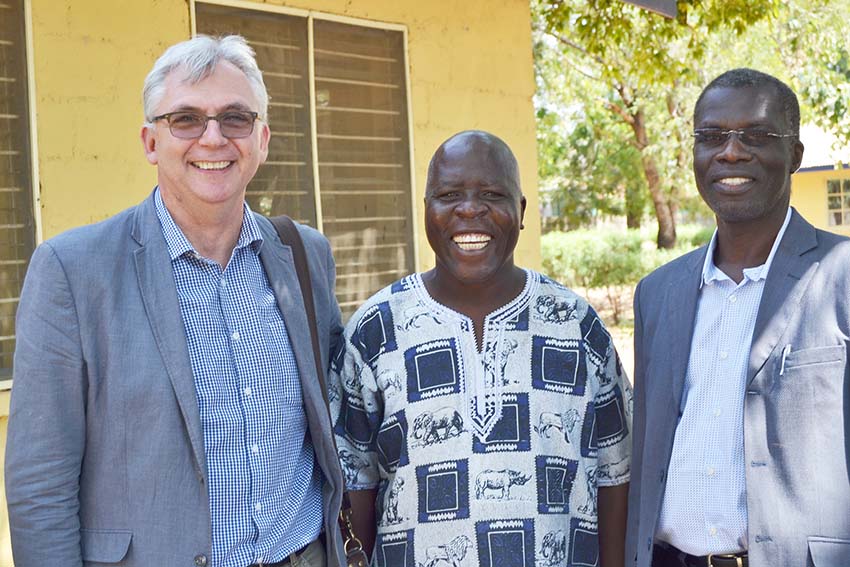
The EYN leadership—president Joel Billi, vice president Anthony Ndamsai, and general secretary Daniel Mbaya—welcomed us, and staff liaison Markus Gamache hosted us. We spent several days at the EYN headquarters in Kwarhi. Church staff for education, community development, agriculture, health care, disaster relief, women’s ministry, communications, micro-finance, and more met with us. We made day trips to nearby places like Garkida—former headquarters of the Church of the Brethren Mission, and the village where I was born. We toured Kulp Theological Seminary and a new EYN office complex. I observed the annual meeting of the Female Theologians Association.
We visited 10 congregations, 4 camps for displaced people, and several schools. Pastors told us stories of their churches. Community leaders described the work to return and rebuild in places where violence has taken a large toll.
In Jos we met Brethren Volunteer Service worker Judy Minnich Stout, who is helping improve English skills of prospective Bethany Seminary students at the EYN Tech Center. We stayed in the guesthouse at Boulder Hill, the compound where my parents were houseparents for Hillcrest School high schoolers, and I visited my alma mater. The Gamaches invited us for dinner at their home—the place my parents last lived in Nigeria, the same house I helped my father pack up when he moved back to California in 1987. The china hutch was still in its place, displaying Janada Gamache’s beautiful set of serving bowls.
We attended the “autonomy” celebration of full congregational status for the EYN church at the Gurku Interfaith IDP Camp that was founded by Markus Gamache. Wittmeyer preached for the service.
On the last afternoon, we met with US ambassador W. Stuart Symington. Our delegation included EYN president Billi and general secretary Mbaya. It was an important new connection between EYN and US diplomats.
What did I learn? That EYN is a large and complex African denomination straddling many divides while working hard to be true to Jesus Christ, all while enduring a national crisis.
EYN is forging ahead while holding onto aspects of traditional culture that may be under threat in the 21st century. In worship services, I heard Christian lyrics set to traditional tunes and saw gospel teams perform tribal dances. In a country with more than 500 languages, we met EYN ministers who are translating the Bible into languages spoken in two small areas of the northeast. During the same trip, I was surprised to hear stories of Christians in Nigeria engaging in polygamy.
EYN values its Brethren heritage and the mission effort that founded it, and is hanging onto Anabaptist understandings of Christian discipleship while under pressure from other theological influences. Those include Pentecostalism and the prosperity gospel. EYN leaders are committed to the peace witness, but some church members question pacifism in the face of violent attacks and other Nigerian Christians advocate for retaliation.
EYN seeks new ways to work at widespread problems in Nigeria, while struggling with a lack of political influence. Its micro-loan bank is one attempt to address an economy in which a population explosion and unemployment reinforce the cycle of poverty. Congregations are encouraged to start schools as an answer to deteriorating public education. Theological Education by Extension offers women an entrée but the denomination still does not ordain them. New churches are planted even as established congregations struggle to rebuild. The Disaster Ministry, Women’s Ministry, and Integrated Community-Based Development Program are among EYN departments working with people and communities affected by the violence, but the needs are overwhelming.
Nigerian Brethren constantly asked me to thank the Church of the Brethren for its support. Their theological conviction, however, is that EYN’s survival is “through God’s will.”
My response must be, “Thanks be to God.”
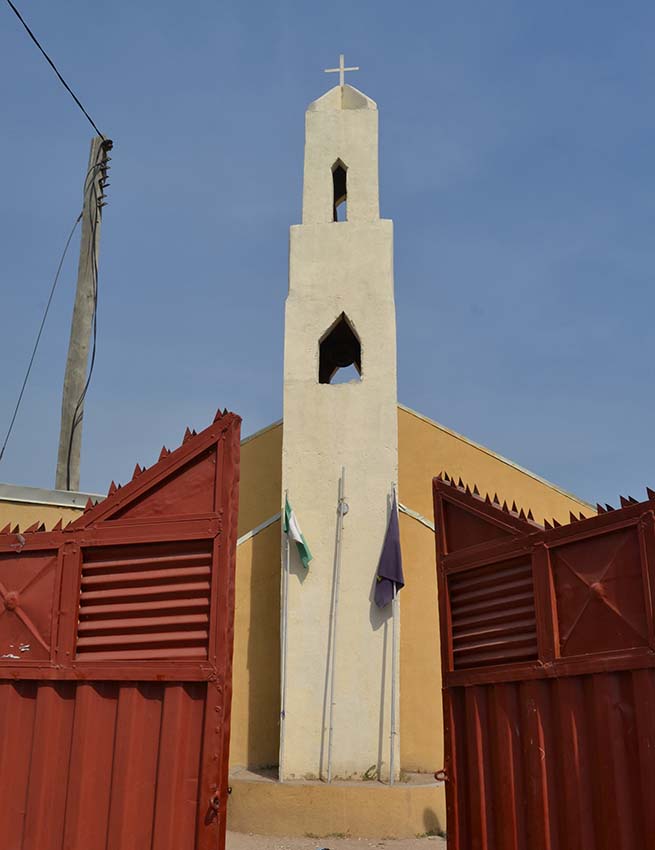
A quick guide to EYN structure
A church may begin as a preaching point or an off-shoot from an established congregation, and is first called a local church board (LCB). In this way, some congregations become “mother” churches many times over.
Once an LCB grows to 150 members and is strong enough financially, it gains full congregational status as a local church council (LCC).
Five or six LCCs may group together to form a district church council (DCC) with a district secretary appointed by the denomination.
The General Church Council (GCC) is EYN’s annual conference. Its annual meeting is the Majalisa.
Leading the church through loss
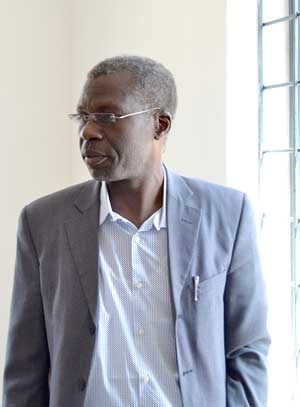
When Joel S. Billi became president of EYN in 2016, the Boko Haram insurgency was beginning to wane. People were returning home to face their losses, including EYN staff displaced from the church headquarters and pastors and congregations who had fled their communities. Families had lost loved ones. Churches, homes, and businesses had been destroyed. Almost everyone had experienced trauma.
In November 2018, two years later, trauma and crisis continued. Boko Haram was attacking and even controlling some northeast areas, and extremist elements among the Fulani cattle herders were carrying out deadly attacks in the central belt.
“The life of a Nigerian today is not worth that of a chicken,” Billi said. It is time for Christians in Nigeria to band together to ask the government to end the violence. Some 1,300 or more soldiers were killed from July to October 2018. Four of the 55 church districts were not functioning because their areas were too dangerous.
Nigerian Brethren have seen little or no benefit from the government’s claim to be rebuilding the northeast, Billi said. Borno State aid helped rebuild 15 EYN churches destroyed by the insurgency. Many more churches received no government aid. State-run facilities like hospitals received little help either. Bridges and roads across the area remained in ruins.
The insurgency drastically cut giving, with many Nigerian Brethren displaced, lacking access to income from farms or employment. Returning congregations face the cost of rebuilding their churches. Many people are homeless, and poverty is rampant. Billi expressed gratitude to the US church for its gifts. “Thanks be to God for the Church of the Brethren, which has stood by EYN,” he said.
The giving to Nigeria by American Brethren has been “unprecedented,” Billi said, with more than $4 million donated. That amounts to Naira 1.5 billion. “For such an amount of money to be gathered up in such a short time, less than five years!” he exclaimed. “It has gone a long way and has touched people’s lives.”
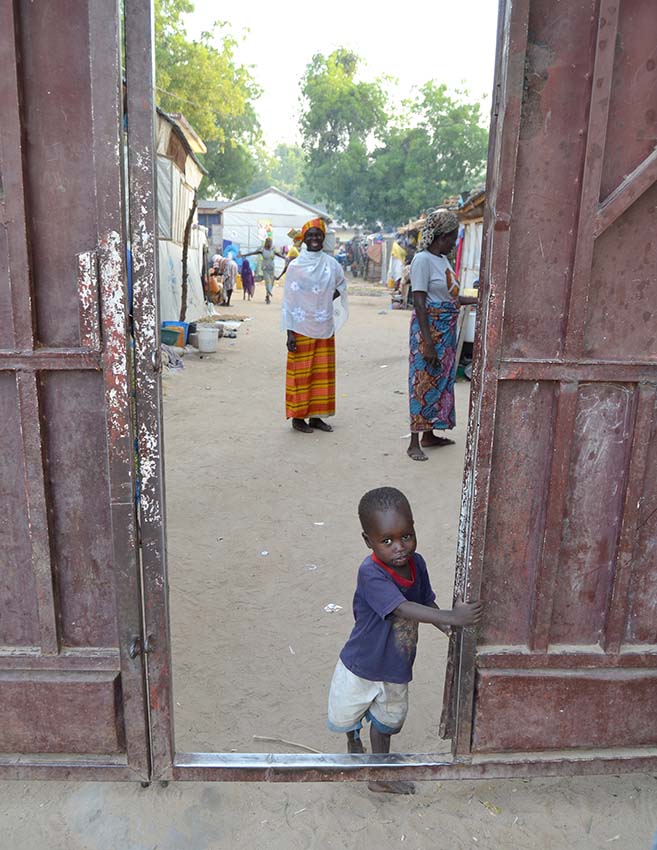
Billi listed successes of the Nigeria Crisis Response, a joint effort of EYN and the Church of the Brethren funded by this giving: support for camps for displaced people, medical care, trauma healing, and more. One specific EYN Disaster Ministry program is to rebuild homes, with priority given to widows and the aged.
The task of rebuilding churches has been helped by Global Mission and Service grants to EYN congregations, also funded by American donors. As of Nov. 2018, 40 EYN congregations each received $5,000, totaling $200,000. Some congregations sent representatives to EYN headquarters to express their gratitude with letters and small gifts.
Billi’s next priority is evangelism. The persecution of the church has resulted in growth for EYN, which has been expanding into new areas. “People have fled and have taken the church with them,” he said. “Not too long from now, EYN’s presence will be felt in all of Nigeria.”
EYN has celebrated the “autonomy” or full congregational status of an unprecedented number of churches in the last two years. Before the crisis, EYN welcomed seven or eight new churches each year, but in 2017, 23 were organized. As of November, more than 20 had been organized in 2018, as well as 2 new districts. In early December, EYN inaugurated a Lagos district. This is significant because Lagos is the largest city in Nigeria, far from EYN’s established territory.
Another success is growth of Theological Education by Extension (TEE), which Billi said has become the largest institution within EYN. He thanked the Church of the Brethren for its annual grant in support.
TEE “has become an apparatus of accommodating women,” being 80 to 85 percent women, Billi said. “We pray God will open our eyes to discover other ways to bring women on board so that they too can be up and doing. We have tasted now the years that women have contributed greatly to the church. Without women, EYN would not be what it is today.”
Despite the recent growth, some church members are looking for more. EYN membership is very enthusiastic about evangelism and “some are saying we are slow in church planting; we should move faster.”
Billi celebrates the growth with mixed feelings, because he does not want the daughter church to surpass its parent. He has observed that “the Church of the Brethren is shrinking,” and that its unity is threatened by theological differences.
“I always pray that the Church of the Brethren remain as an entity, that EYN remain as an entity. We want to grow a formidable partnership. We want the Church of the Brethren to be a peace church, to influence all the denominations and attract people to join us.
“We should embrace each other as workers in the vineyard to serve God.”
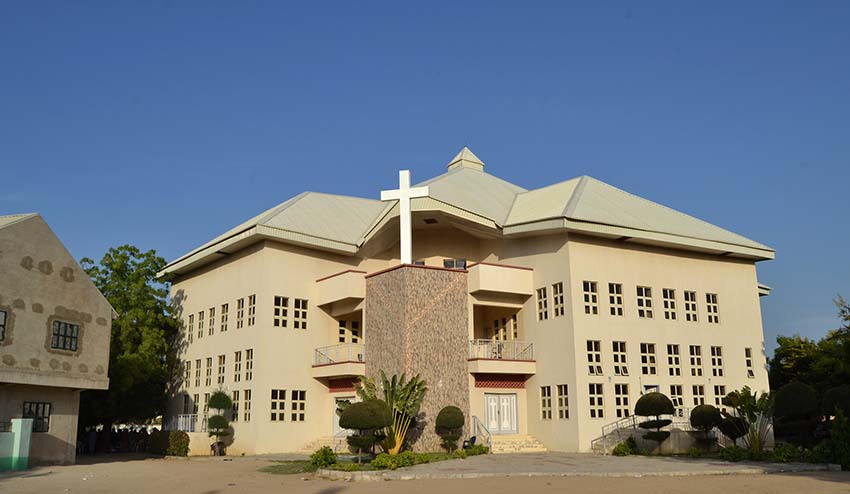
Leadership elections, assignments, and payment
Top EYN leaders are elected by the Majalisa and serve as executive staff. After completing his term of service, the president retires and is ineligible to serve in another position.
Pastors are assigned to congregations by the denomination and reassigned at least every five years. Denominational staff and district secretaries may be reassigned as well.
Every fall, EYN leadership announces reassignments. Those pastors and staff have just a couple of months to move. A pastor from a rural setting may be reassigned to a large city; staff may become district secretaries.
Making reassignments is one of the most important discernment tasks for EYN leaders, and publication of the list is highly anticipated.
Assignment to certain congregations may indicate a pastor is moving toward consideration for top leadership. This seems true for EYN Maiduguri #1, which has seen several pastors become president or general secretary.
EYN has started a new “central payment” system, in part to facilitate pastoral salaries. Each congregation is required to send 35 percent of its income to the headquarters. EYN then pays pastors directly, and also funds staff salaries and denominational programing. The system may be understood as a step toward equity for pastors and congregations in disparate situations because of the violence.
Becoming what God desires
“The most important thing for a church is church planting,” said Anthony Ndamsai, EYN vice president. The Boko Haram insurgency unexpectedly has opened up more chances for EYN to do just that. Church members displaced by violence have moved to new areas and are forming new congregations.
EYN’s Evangelism Department is helping achieve that purpose, along with the denomination-wide fellowship groups like ZME Women’s Fellowship, Men’s Fellowship, Gospel Team, Boys and Girls Brigades, and more.
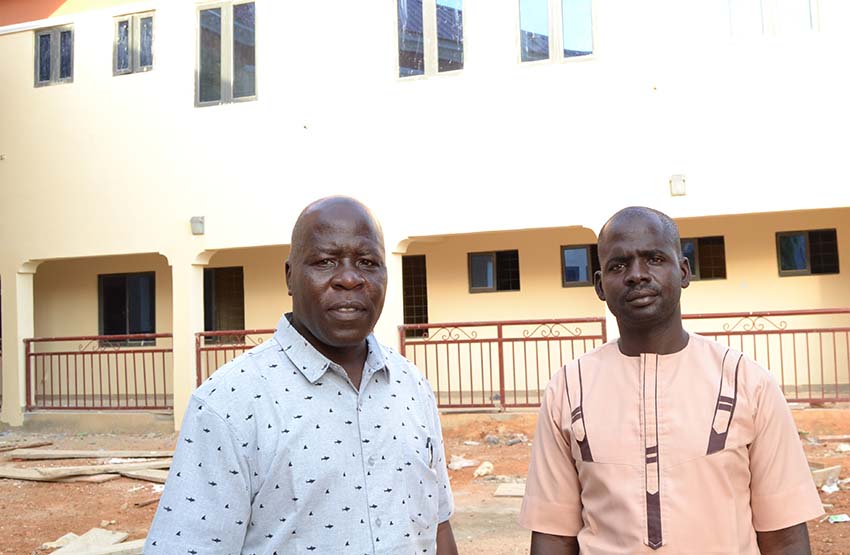
But EYN ministries face a lack of funding, in part a result of the crisis. When people flee violence they also are displaced from established congregations whose offerings are the financial backbone of EYN. Offerings have “drastically dropped,” Ndamsai said. Many church buildings were destroyed and congregations have had to focus financial resources on rebuilding.
Some of the efforts of the government to dislodge the insurgents from the northeast didn’t help EYN. For example, several buildings at the EYN headquarters in Kwarhi were destroyed by government bombardments when the Boko Haram overran the area in 2014. The health clinic there is one ministry that still hasn’t recovered fully, its rebuilding still incomplete four years later. The roof of one clinic building is still leaking because of shrapnel holes.
Challenges bring new opportunities, however. Ndamsai told of one unexpected opportunity: increased numbers of converts from Islam. Because of the violence, “many are saying that Islam is not a good religion . . . a religion that destroys, kills in the name of serving God.”
At the same time, EYN’s Peace Department is working on interfaith relationships with the Muslim community. In one example, a conference of Christian and Muslim scholars was held in Yola a year ago in March. Ndamsai emphasized that EYN is working hard to maintain the peace witness, and pastors have been preaching peace. Displaced EYN members returning to their home communities are, for the most part, not retaliating against neighbors who may have taken part in violence or looting.
It has been difficult for EYN leaders to keep encouraging nonretaliation, however. “We always have those that have the idea that nonviolence is not the answer or the solution,” Ndamsai said. “The pastors have had to work very hard to calm people down.” Pastors are sharing the message that retaliation “will not pay them back for what they have lost.” Nigerian Brethren are coming to understand that it is wise not to retaliate, because retaliation will start a new cycle of violence.
Ndamsai wrote his thesis on pacifism and its relevance in Nigeria. Some years ago during his time at the Theological College of Northern Nigeria, an ecumenical seminary near Jos, the area was undergoing mob violence blamed on interreligious conflict. Ndamsai helped rescue some young Muslim boys from an attack by seminary students from another Christian denomination.
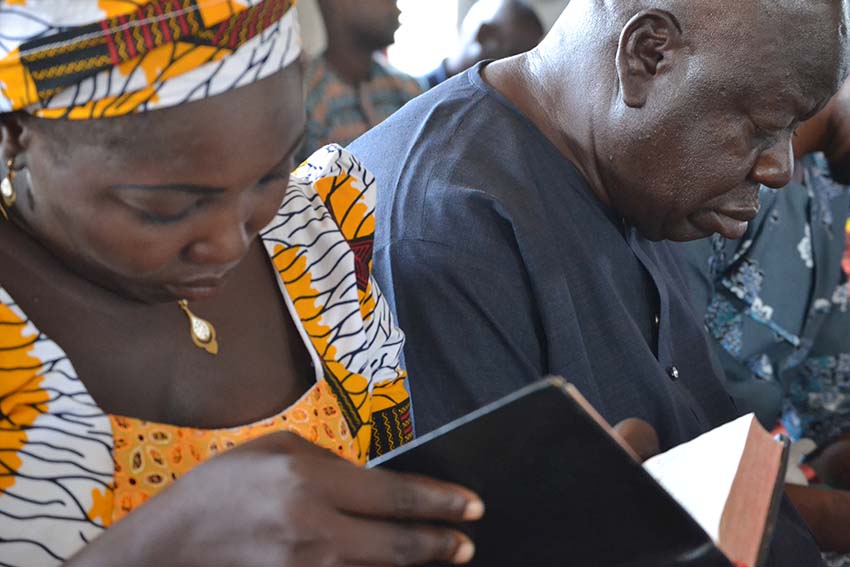
This experience helped him understand the importance of pacifism for Christians. If pacifism were accepted and practiced by all Nigerian Christians, he said, it would renew Islam’s respect for and relationship with Christianity.
EYN’s peace witness actually has renewed its respect within Nigerian ecumenical circles, he added. The fact that EYN is surviving and even growing has caused other Christians to ask, what is the secret? One sign of success is the election of EYN president Joel Billi as vice president of TEKAN, an ecumenical organization of churches mainly in the north of Nigeria. This January, the EYN headquarters is hosting a large TEKAN conference.
The 2018 decision by the Church of the Brethren Annual Conference to explore creation of a global Brethren body will further enhance EYN’s witness and ability to evangelize, Ndamsai said. “It is high time that we do this thing together to the glory of God,” he said.
To Ndamsai, EYN is like the New Testament church, pushed by persecution to move outside of its boundaries and become what God desires it to be. “The insurgency has brought much damage to the church, but we can see also the purpose for which God has allowed that to happen.”
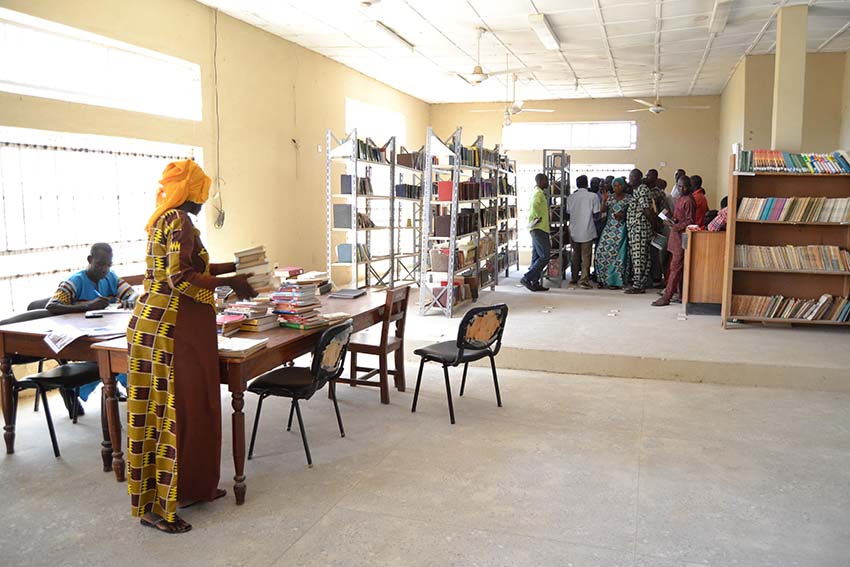
Profile: Kulp Theological Seminary
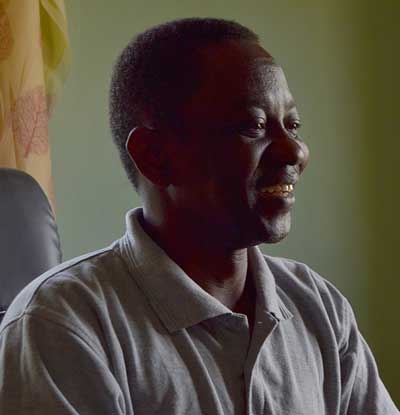
Location: Kwarhi, near EYN headquarters.
Student population: 238 men and women, including 196 seminary students and 42 students in the school for pastors’ wives.
Leadership: Provost Dauda Gava leads a staff of 57 including more than 20 academic staff.
Degrees and areas of study: Seminary students may earn a diploma (3-year program) or a bachelor’s degree (4-year program) in areas such as Bible, church growth and evangelism, Christian education, peace and conflict resolution, and more.
Support: KTS receives funding from student fees, the denomination, and other partners such as Mission 21 and the Church of the Brethren.
Challenges
- A need for professors with doctorates to teach the master’s degree program, and for teachers of Islamic studies.
- Expectation that graduates serve as EYN pastors. More graduate than there are paid positions in the denomination. Women face an additional lack of employment opportunities because EYN does not ordain them nor hire them as pastors. Female graduates may teach in Bible schools and work with Theological Education by Extension.
- A project to improve on-campus living quarters for students and staff.
- Difficulties with the water system.
- Not enough farmland to accommodate all students.
Successes
- Accreditation through affiliation with the University of Jos.
- Improvements to the library, which is in process of cataloging books donated by American Brethren.
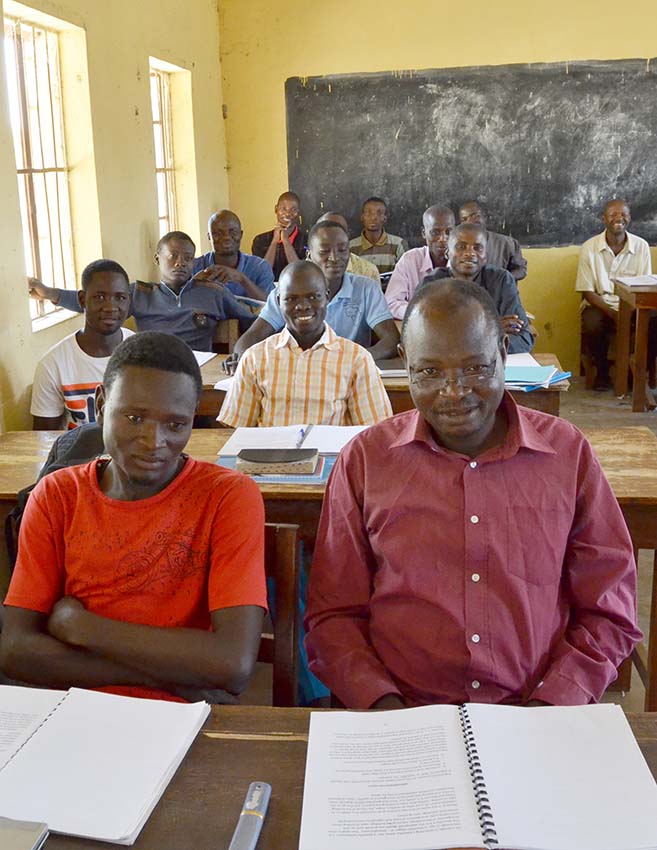
To learn more about the word of God
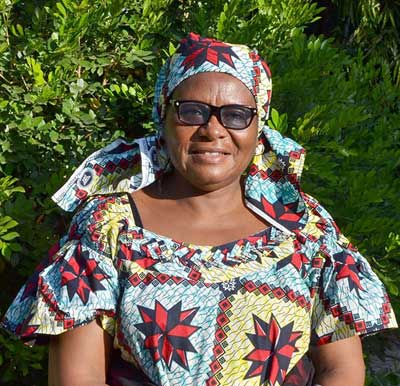
“To teach people the Bible” is how Yamtikarya Mshelia, director of Theological Education by Extension, describes TEE. The program educates laypeople, something like a Bible college without a campus. Students live everywhere from the large southern cities of Lagos and Port Harcourt to northern cities such as Kano and Kaduna, and across the northeast where most EYN churches are located.
Mshelia emphasized that TEE takes students at all levels of proficiency. Some already hold higher degrees, are professionals, or are government workers who simply “want to learn more about the word of God,” she said. “Then we have women learning to read and write.”
Students who complete basic, advanced, and post-advanced TEE earn a certificate. Those who complete the next level up earn a diploma in theology.
It is “a lively and interesting program.,” Mshelia said. “It helps people who cannot afford seminary. Sometimes they will go into the pastoral vocation.”
Students are provided books and materials to read. There are class leaders and a supervisor in each church district. Throughout the semester, student groups meet every other week. During these class sessions, groups of students numbering not more than 10 discuss what they have been reading. At the end of the semester, they take an exam.
Challenges include funding, and recovery from the setbacks caused by the violence. Some students cannot even afford books, Mshelia said, frustrated that the program cannot help every prospective student. The TEE office in Mubi still shows damage from the Boko Haram occupation and military bombardment.
Mshelia has earned an impressive number of theological degrees, and her enthusiasm for biblical study shows. She holds a bachelor of divinity from the Theological College of Northern Nigeria; a master of arts in theology from Bethany Seminary; a doctor of ministry from San Francisco Theological Seminary; a certificate in ecumenical studies from the Bossey Institute of the World Council of Churches. She has studied at the Pan African Institute of Development in Cameroon. She was director of TEE from 2000-06 and again starting in 2017. She also coordinates the EYN Female Theologians Association, a professional association of women with theological training or degrees.
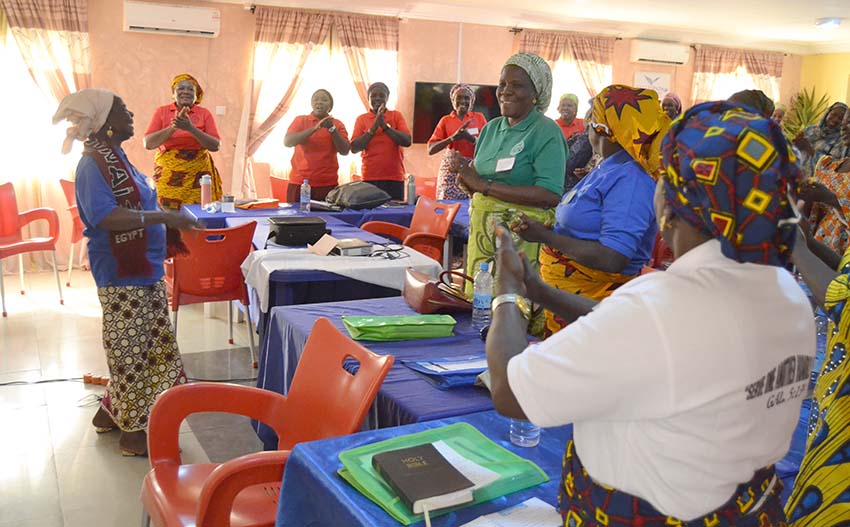
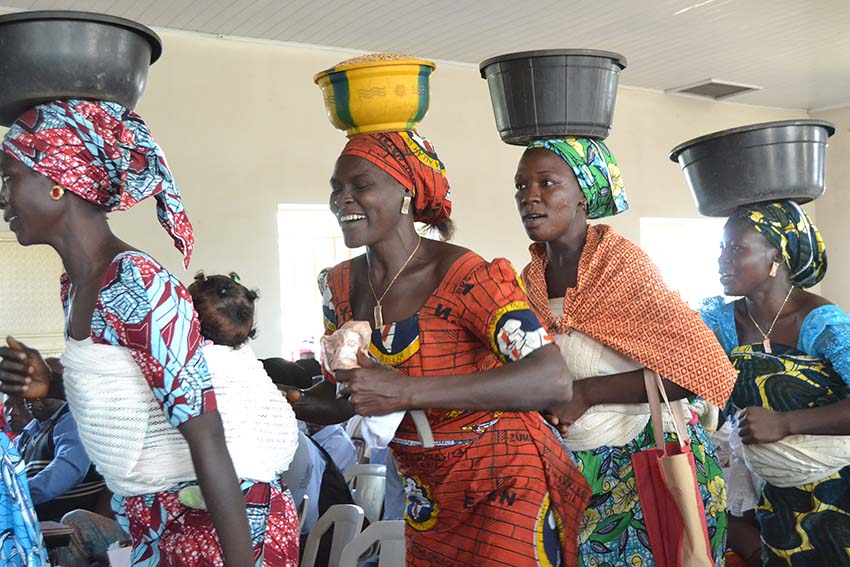
Hear music from the celebration
Church services in EYN are like a combination of worship, concert, and town hall. They feature a sermon, scripture reading, and prayer, but also community announcements, music and dance performances, perhaps even a wedding. A service may last four or more hours. Announcements may take half an hour. Offerings may take longer than that.
There is a standard mix of music groups: the church choir and praise band, the youth/young adult Gospel Team, local chapters of denominational groups such as ZME Women’s Fellowship. Each may dress in coordinated outfits of branded cloth.
Congregations may offer more than one Sunday service: a Hausa service, an English service, a combined service in which leaders switch fluently between the two, and/or a service in the local language.
Join the Gurku church in prayer
There is hand-wringing about in-roads Pentecostalism is making in Nigeria. Young adults are attracted by the loud music, frenzied worship, and public prophesying. Others are lured by the prosperity gospel, promises of wealth from unethical preachers who tell people they have to give money in order to get a better job, bigger house, new car—or even new wife. These are the same kinds of promises that Boko Haram dangles before prospective recruits, one EYN leader pointed out.
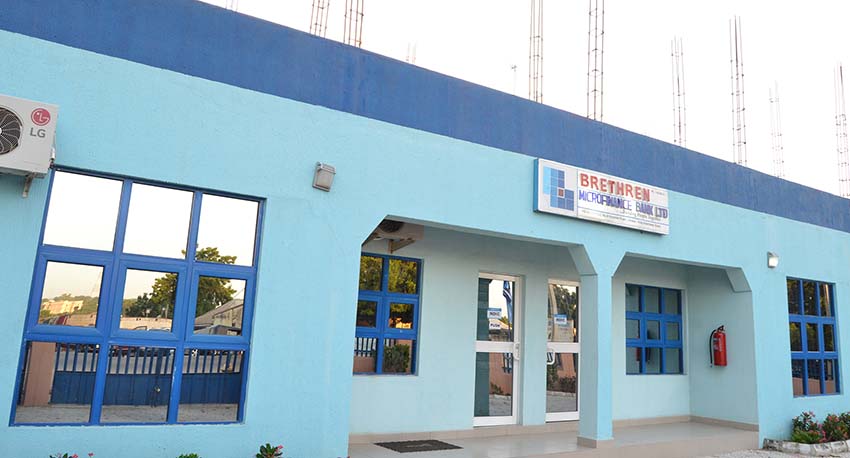
Igniting hope through micro-finance
EYN inaugurated a micro-finance bank in Feb. 2018, and Paul Gadzama served on the technical committee that worked to produce its “blue print.” He thinks of it as having “mid-wived the birth of a bank.”
Paul and Becky Gadzama are known for the Education Must Continue Initiative that has helped Chibok schoolgirls and others affected by the Boko Haram insurgency. They have started two schools for primary- and secondary-age students, in Yola and in Lassa, and are among those encouraging EYN churches to start schools.
The technical committee worked to understand the business environment and the community to be served. It crafted the bank’s purpose, mission, and vision, and made sure it fulfilled stringent conditions set by the Central Bank of Nigeria including a minimum capital base and a qualified board of directors.
The committee found investors and organized a shareholder meeting. That meeting elected directors, who were vetted by the Central Bank. A follow-up step was recruitment and hiring of management staff. The technical committee disbanded, but Gadzama’s work was not done—he was elected to the board.
“It’s a poor person’s bank,” he explained, intended to serve “basically the poorest of the poor.” “Minimum wage in Nigeria is Naira 18,000 . . . about $50 a month. The poorest of the poor are below that. They are at the mercy of nature.”
Many clients are subsistence farmers and craftspeople who barely make an income, can feed their families only once or twice a day, are unable to pay for education for their children, and cannot afford medical care. Clients also come from among those who are a step up, living in rural areas, semi-employed, doing a lot of farming and trading.
The bank gives loans to people who have been assessed as able to repay over time. However, it encourages formation of cooperatives, which serve as security and guarantors for people who might not be approved for loans. EYN congregations are facilitating formation of cooperatives. Becky Gadzama heads the Economic Empowerment Committee of a church in Jos, which has helped create five such cooperatives. All have benefited by taking loans from the bank and have started repayments.
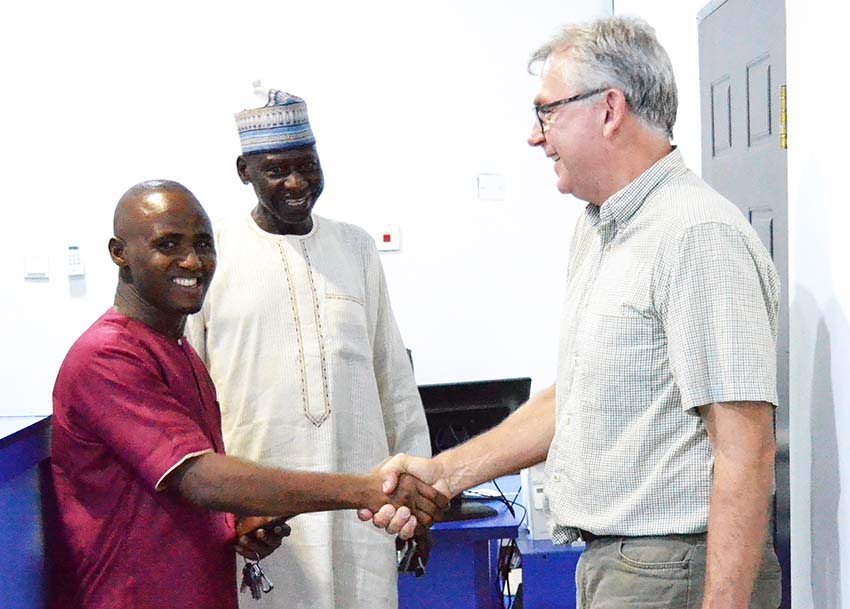
The bank is intended to generate income for its investors, Gadzama emphasized. “Do good with your money and make money while you do,” he told investor prospects. While many investors are well-to-do, others are less affluent church members who have seen an opportunity for their small investments to do good too.
Gadzama expects the bank to do well as a business and as a church ministry. “We will invest at a good return. The business environment is not too friendly, but if you understand it you can do a lot.”
The bank will increase the spiritual capital of EYN, he added. “People’s hope in God has been ignited.”
Profile: The EYN IDP camp at Kutara Tataradna
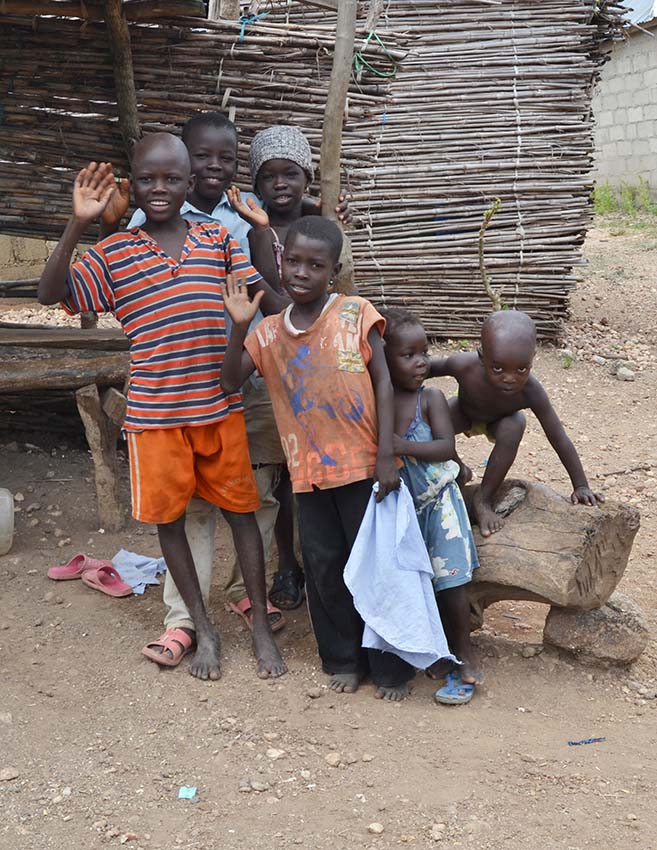
Location: Near the town of Masaka, Nasarawa State.
Population: 467 people including children. Most are EYN members who cannot return home to the Gwoza area where Boko Haram still holds territory and carries out frequent attacks. Some come from other hard-hit areas including Michika, Askia, and Uba.
Leadership: Adamu G’dauwa is camp chairman. He has lived there since the camp started in 2015.
Support: The camp receives aid from the EYN Disaster Ministry and the Nigeria Crisis Response of EYN and the Church of the Brethren.
Housing: Families live in small cement block homes with access to farmland.
Necessities
- A water system installed with help from the Nigeria Crisis Response pumps water from a well and stores it in tanks; families carry water for use in their homes.
- The camp raises food by farming crops including beans, corn, and maize. It also has received food distributions from EYN’s Disaster Ministry.
- There is a small school onsite, and a clinic. A roofed shelter serves as a church building.
- Access to jobs and income-generating livelihoods in the surrounding community is being developed.
Most pressing need
- Funding for teacher salaries, because most IDP families cannot pay school fees. Cost per child per quarter is Naira 2,000 or about $6. A teacher is paid about $100 a month. The school had lost a couple of teachers because they were not being paid. As of early last November, the two teachers who remained had not been paid for three months.
Successes
- The camp is in an area of good farmland and brought in large harvests this past fall, succeeding in raising two crops of beans in the growing season. The IDP farmers have expertise in raising beans, which they are teaching to farmers in the surrounding community.
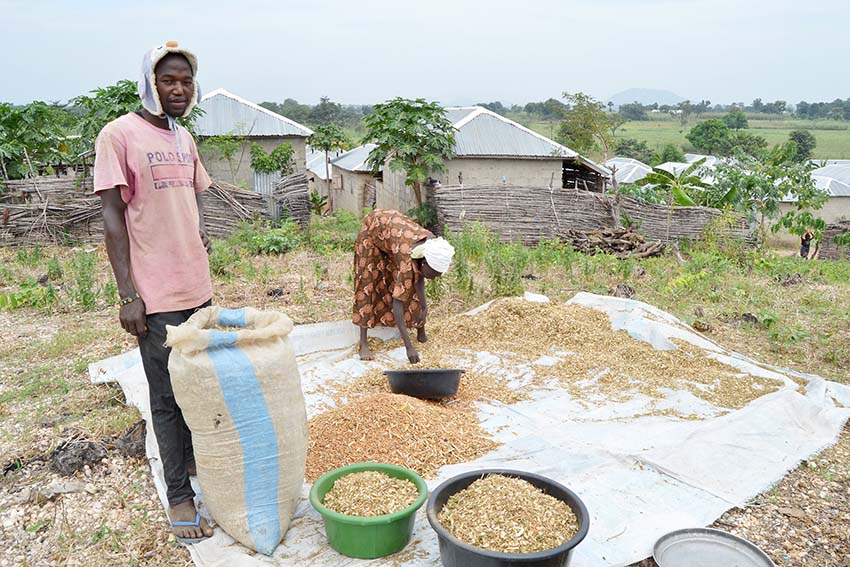
ICBDP: EYN reaches out to its neighbors
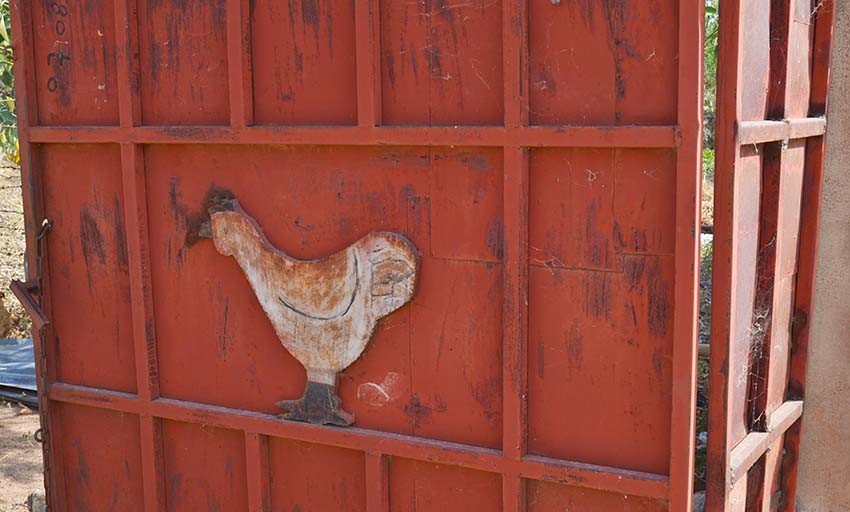
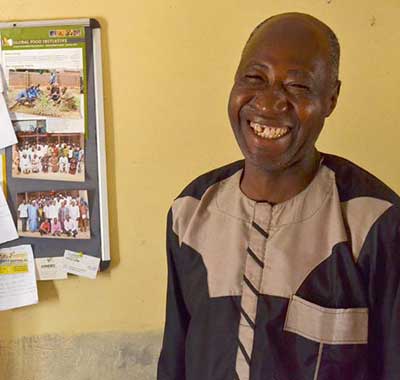
EYN’s Integrated Community-Based Development Program, known by the acronym ICBDP, sits figuratively on a three-legged stool of community development, agricultural development, and health care. Director James T. Mamza oversees the programs of ICBDP, from an office at the EYN headquarters in Kwarhi.
Community development
Emmanuel Daniel is deputy director of the community development leg of ICBDP. Working out of Garkida, the place where the Brethren began in Nigeria and the former mission headquarters, Daniel leads a diverse program that includes well digging and other infrastructure development alongside trauma healing and income generation efforts by self-help groups.
The community development program gets funding from international humanitarian agencies including Bread for the World. Its 9 “stations” each work with 4 surrounding communities, totaling 36 communities in EYN’s “heartland” area of the northeast.
Daniel’s staff use a manual from Zimbabwe to guide their work to develop basic businesses with self-help groups. These groups of a maximum of 25 people are self run, choosing their own leadership.
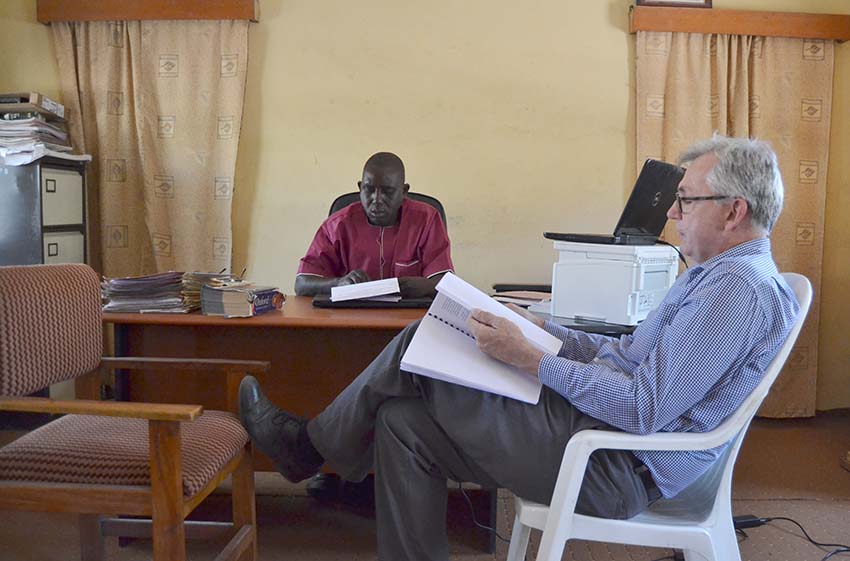
The program’s effort to aid communities in providing water to their people hearkens back to the popular mission well-digging program that had been led by the late Owen Shankster, also based in Garkida. Daniel said his staff consider bore holes as the best option to reach aquifer levels, but sometimes a well must suffice. The program provides Naira 30,000 to communities to encourage them to dig wells or bore holes, with the communities required to put in a significant amount of the total funding needed. “We discourage dependence,” he explained. A completed well costs up to Naira 50,000 (about $135), depending on the nature of the soil.
An interesting struggle Daniel faces is how to balance the appropriate amount of local church involvement in the work, because of the program’s commitment to reach both Muslims and Christians. Some of the women’s self-help groups are mixed, some predominantly Muslim, he said. The program is doing trauma healing with Muslims and Christians.
The trauma the region suffered at the hands of Boko Haram also hit the community development program. Previously, the program had a staff of 42 based at Garkida. After the insurgency hit, that number dwindled to 16, with many staff fleeing the area and some moving to other EYN departments.
Health care
Garkida also is headquarters for the health care leg of ICBDP. As with the well project, this is a continuation of a popular program of the former Brethren mission—the Lafiya program started by the Church of the Brethren in the latter part of the 20th century. Its central process remains the same: health care workers are sent by their villages or local communities to Garkida, where they receive training in order to return home to staff clinics.
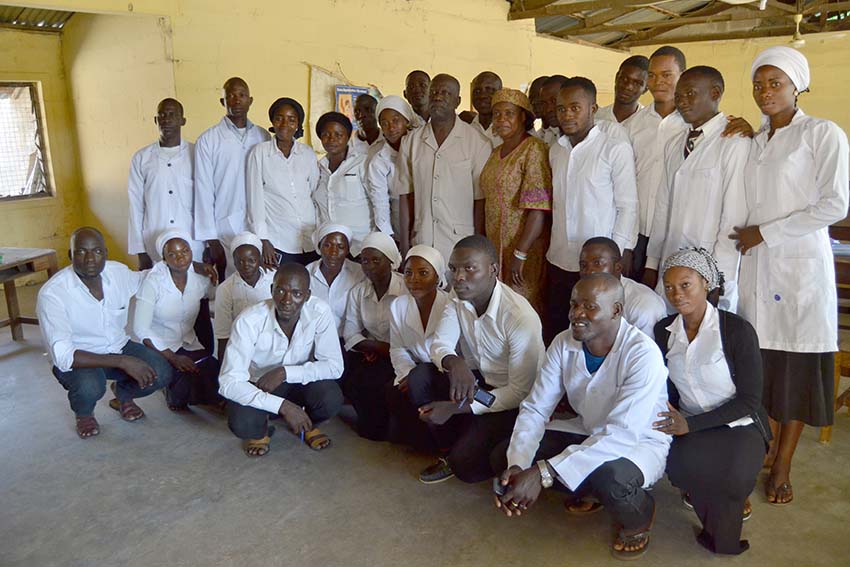
Although it is run by Nigerian Brethren, the program is government-supervised and works within the Nigerian health care system. Rifkatu H. Tanfa is the central clinic supervisor for the 15 clinics and village health posts, and has worked with the program for more than 20 years. Yohanna Mamza is principal of the training school for the health care workers.
Communities that are served are responsible to start the clinics, Tanfa explained. Sometimes it is a local EYN congregation that helps create a clinic and sends people to be trained as clinic staff, she said. Clinics provide mainly preventive health care, but also some curative care. For example, in the area of care for mothers and babies, health care workers are trained to deliver babies, provide contraception and birth control services, and do pre-natal visits and well-baby check ups. Potentially difficult deliveries are identified and sent to hospitals. Clinics often see patients with malaria, typhoid, or HIV. Some clinics with a higher level of services can do blood draws and give vaccines for polio, diphtheria, and other diseases. The program has a central store for pharmaceuticals, from which it distributes drugs to its clinics.
Lafiya had received major funding from the Church of the Brethren, but the current program is not receiving major funding from EYN. Instead it relies on fees and drug sales to continue its services, she said. Some aid to build clinics has come from international humanitarian groups.
People in the area really appreciate the program and are sending their children to be trained as health care workers, Tanfa said. As of November 2018, there were 32 students in the six-month training program. Principal
Mamza hopes to extend the training school to become a college of health and technology in order to get government certification, and a “national certificate” that will attract more students. With the national certification, graduates would be able to work both within the clinic system and in hospitals, with international NGOs like UNICEF, and as primary health care workers elsewhere in Nigeria.
Health work is seen as one of the strongest ways to reach out into the community, a positive option for the church to connect and serve.
Agricultural development
James Mamza is enthusiastic about all three legs of ICBDP, but it is clear his heart is in agricultural development. His office is covered with bright posters and fliers for a soy bean project in which Nigerian farmers are being trained to raise and use this crop that is new to their area. Also displayed prominently are materials from international organizations including the Church of the Brethren’s Global Food Initiative. GFI manager Jeff
In addition to the soybean project, a project raising tree seedlings in at least three different nurseries and orchards around the area has been important, Mamza said. In Kwarhi, a tree nursery occupies a prominent space alongside the main driveway into the EYN headquarters. In Lassa and Garkida, EYN’s agriculture department is maintaining orchards that were started by the Brethren mission decades ago. The department is selling seedlings to help fund the program, but also donating trees to be planted in communities in need. Some funding to maintain orchards has come from the GFI.
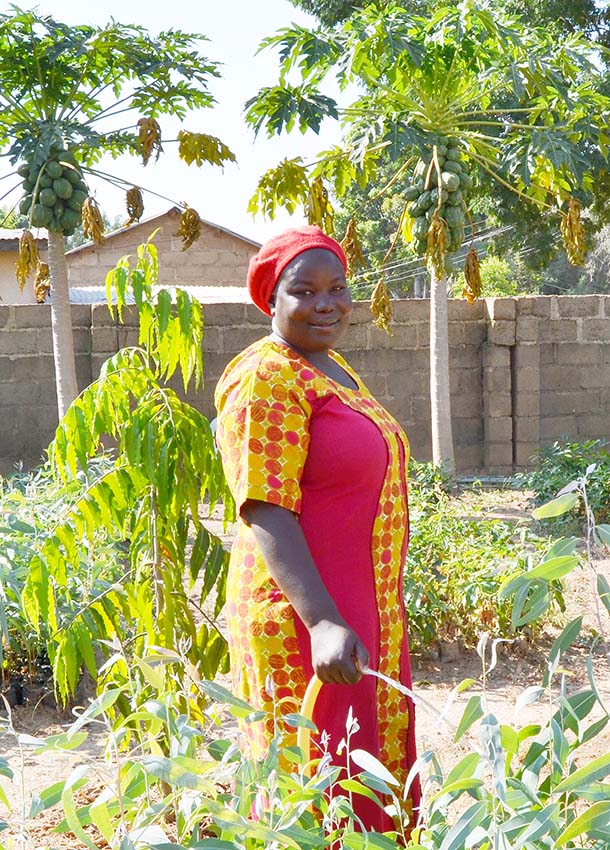
The trees are of a wide variety and are raised for various purposes. Some are for food production, such as mango and papaya trees, cashew trees, and banana plants that provide edible fruit and nuts. Others, such as large shade trees like the mahogany, are being raised and planted around the area for their qualities that help counteract the effects of climate change and may help stave off the Sahara desert’s spread south.
In a recent distribution, Mamza’s staff took 600 to 700 seedlings to each of 10 communities, giving lectures about the importance of planting trees and demonstrating how and where to plant them, he said. In 2017, the program planted 39,000 trees. In 2018, as of mid-November, 23,000 had been planted—all from seedlings raised in EYN nurseries and orchards.
The raising of livestock and poultry is an additional focus. Two large barns on the compound in Kwarhi house as many as 1,300 hens at a time. An average of 25 crates of eggs, 30 per crate, are sold each day. A project to raise goats was begun with support from GFI and funding from the Nigeria Crisis Fund. Mamza shared that the number of goats has doubled in the past year. The program also has a cattle fattening project, with the cattle sold to pay staff salaries and other program expenses.
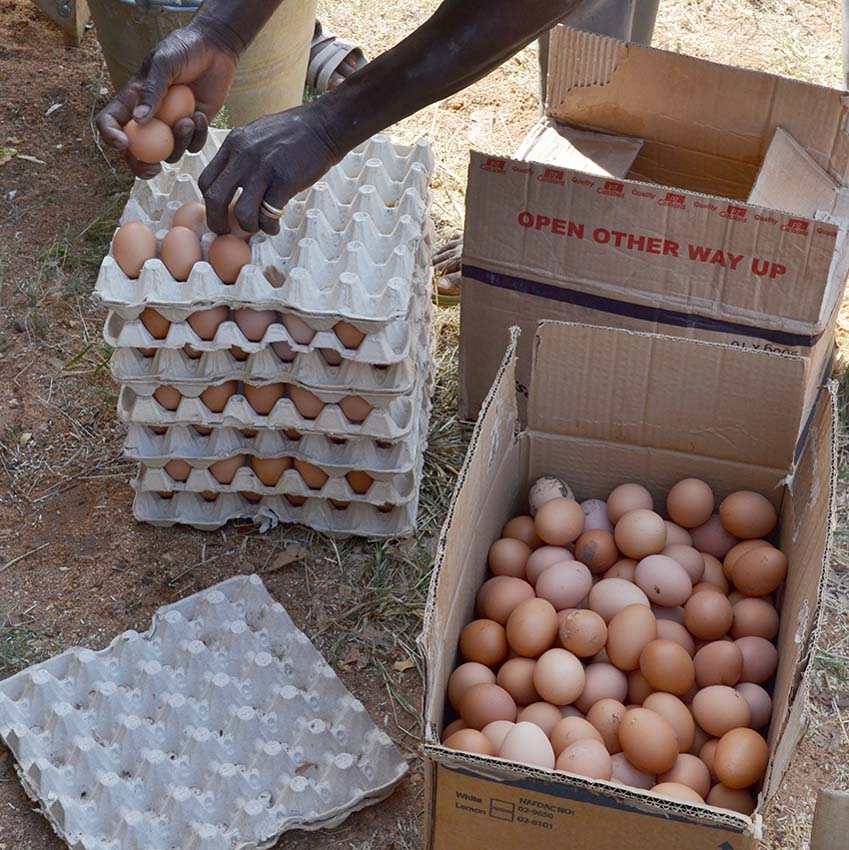
When Boko Haram occupied the area in 2014, however, insurgents stole much of the agriculture department’s supplies and equipment. Four years later, the program was just beginning to regroup and get back on its feet. Before the crisis Mamza said his department did not have to rely on purchasing hens in Jos and shipping them to Kwarhi but hatched and raised its own chicks. The EYN agriculture department was widely known as a source of vaccinated and healthy poultry, poultry feed, animal feed, fertilizers, herbicides, and pesticides. It had both Muslim and Christian clients from around the region, and farmers would come from a distance to purchase supplies because they knew EYN as trustworthy.
“We don’t cheat, we don’t put sand in our fertilizers,” Mamza said. “We’ve built a lot of trust with both Muslim and Christian communities.”
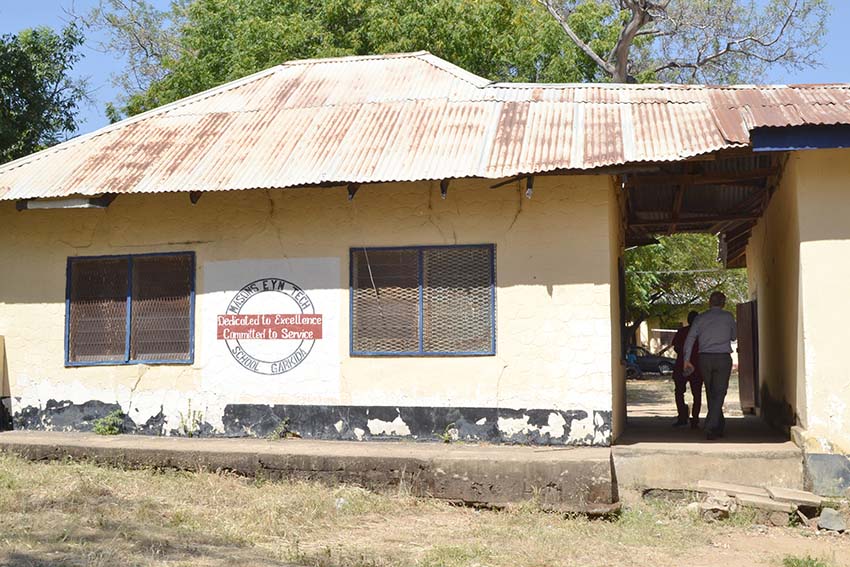
Profile: EYN Masons Technical School
Location: Garkida. The school is named in honor of Ralph Mason, a Church of the Brethren mission worker who died in a tragic accident while serving in Garkida.
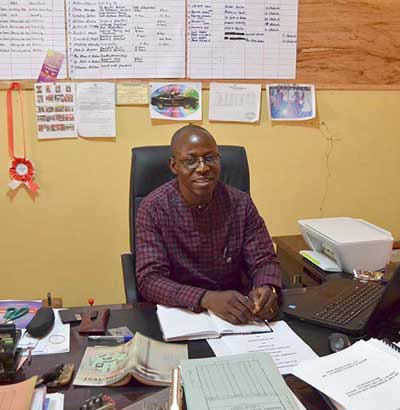
Leadership: Principal Bitrus Hauwa leads a faculty that teaches in seven departments.
Population: 116 students (as of November 2018). Students are mostly EYN members, some are internally displaced people (IDPs).
Educational focus: Vocational training in the areas of auto mechanics and welding, electronics, computers, construction and plumbing, carpentry, tailoring, catering. Some students are in 12-month programs, others in 24-month programs.
Cost: Naira 10,000 to Naira 15,000 per year (around $27 to $40). Students may live in simple dormitories on campus, with water and electricity. Students provide their own food.
Challenges
- The auto mechanics program is becoming more complicated because of the increasing computerization of cars. The school is doing some planning to help students learn the new technology.
- Helping graduates successfully get to work after completing their training. The school is considering returning to an old practice of providing graduates with a “starter kit” of tools and equipment needed to start up their new businesses.
- Attracting more students, to fill the school’s capacity. Ideas include expanding into new areas of vocational education including fabric design, leather working, and shoe making.
Successes
- Concern to attract more women students already has led to the addition of catering and tailoring programs.
- Funding from Bread for the World has been acquired, for three years starting in 2019. This agreement requires 12 percent of the school’s funding to come from EYN and local congregations.
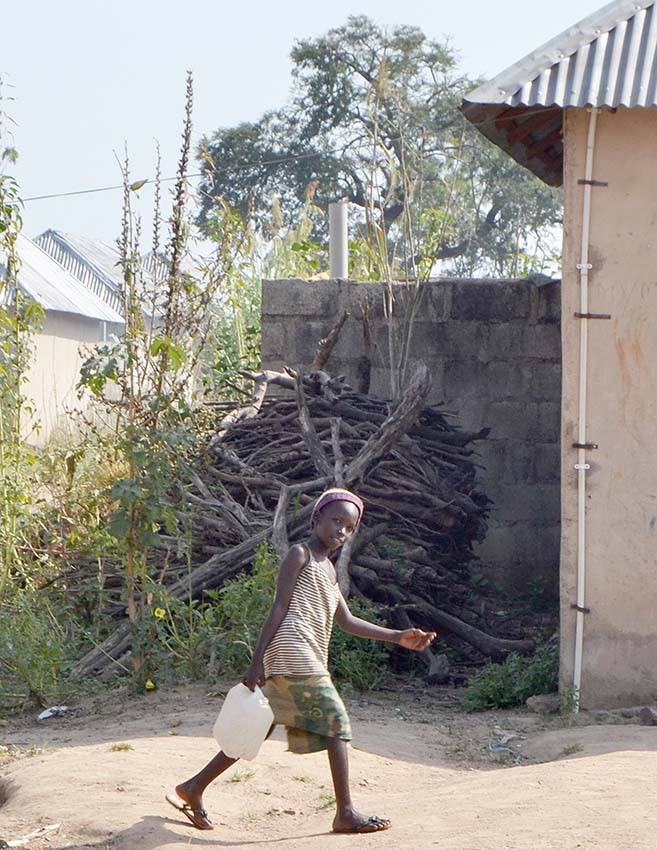
The struggle for water
The struggle for water is visible throughout northern Nigeria. Churches, schools, businesses, and even more affluent homes have their own water systems because one cannot count on a city water supply. Systems may rely on wells or bore holes, with pumps that send water up into large storage tanks set on high stands, and pipes that carry it back down into buildings or public taps. Less affluent communities may share a water system from which people carry water to their homes. Some have manually operated pumps that bring water up from a well. In places without wells, people walk to rivers, streams, and ponds for water.
Profile: Favored Sisters School
Location: Near the city of Jos, Plateau State.
Start date: 2014.
Population: 80 girls and 115 boys, including about 16 “day students” from the neighborhood (numbers as of November 2018). Students are age 6 to 20. Most were orphaned in Boko Haram violence, with the term “orphan” used to mean loss of at least one parent and usually the father. Some came from IDP camps. Recently, the school accepted some orphans from nearby areas in Plateau State attacked by Fulani cattle herders.
Leadership: Co-founders Mrs. Kubili, an EYN member from Biu, and Mrs. Naomi John Mankilik, from Jos; principal Amos Yakubu Dibal, an EYN member.
Educational focus: Preparing primary and secondary school students for qualifying exams; teaching job skills such as farming, carpentry, sewing, furniture upholstery, shoe making.
Support: The school is funded through local and international donations. Much support comes from Brethren sources, including EYN congregations and members, the Church of the Brethren, and the Nigeria Crisis Response. A Favored Sisters group in Maiduguri sends support. American Mennonites and other mission workers in Jos also support the school. Local people have brought gifts of rice and yams to help feed the children. The Fellowship of Christian Students has helped lead Bible studies and trauma healing.
Most pressing needs
- The school struggles to feed its students, especially at the end of the year when annual donations from supporting groups are used up.
- The school has a bore hole and water system, but after the pump failed it was dependent on the generosity of a neighbor who let students collect buckets of water from his house. Last November, lack of safe water had led to cases of typhoid among students.
- Money to pay for student medical fees in the event of clinic visits or hospitalizations.
- More classrooms and dormitory space, biology and physics labs for science studies, a computer lab, and a typing classroom.
Successes
- In 2018, a first class of 19 students earned Junior Secondary School Certificates.
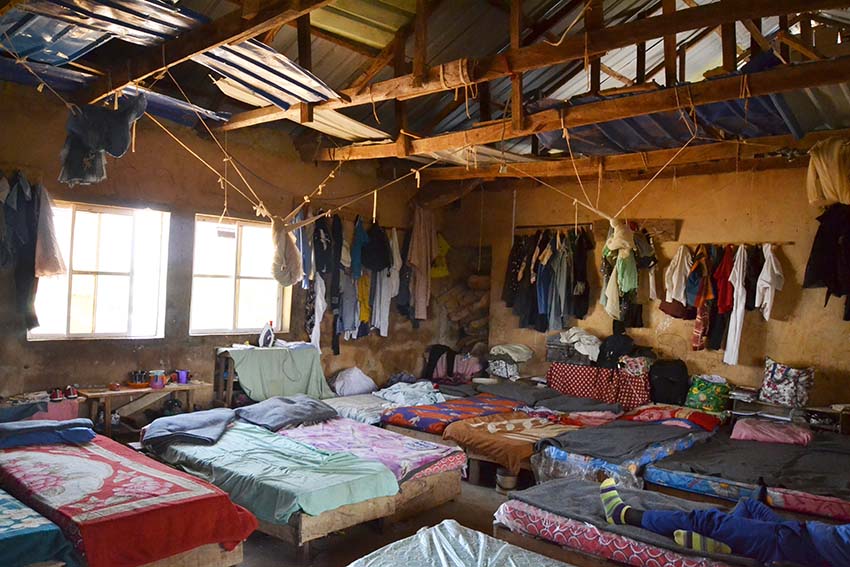
Speculation about the 112 Chibok schoolgirls still unaccounted for is just that. Even EYN members in a position to know—for example, through personal connections with Chibok families—do not know what has happened to them. They fear most have been killed by insurgents or died in army attacks on Boko Haram.
In the meantime, others have been escaping from Boko Haram but are not making the news. An EYN member told about one woman who had been held in the Sambisa Forest since 2014 and escaped last November. She walked out on a day the insurgents were engaged in an attack elsewhere. It took her a full day to walk out with her youngest children, while she was pregnant by her Boko Haram “husband.” She was widowed twice—her husband was killed by Boko Haram when they captured her, and the insurgent she was given to was later killed as well. Her three-year-old son, born in captivity, was so fully indoctrinated by Boko Haram that he considered himself among infidels when she first took him to church after their escape.
Middle-aged and older Nigerians are nostalgic for the way things were, before what everyone calls “the crisis.” Not all that long ago, Muslims and Christians lived side-by-side. They grew up as friends, went to school together, attended each other’s weddings.
What happened to us? they wonder. How could Nigeria have come to this?
Living on a time bomb
“Maiduguri is living on a time bomb,” said a member of the church committee at EYN Maiduguri #1.
It was too risky for Americans to drive to Maiduguri, so we flew from Abuja. All seemed peaceful in the city limits—but Maiduguri is a garrison town heavily guarded by Nigerian military and an air force base. Soldiers, police, and vigilantes carried military-style rifles around the city. Even two guards patrolling the courtyard of our hotel gave us a friendly welcome with their rifles casually flung over their shoulders.
Go two or three kilometers out of the city and you will find Boko Haram, said pastor Joseph Tizhe Kwaha. A professor at the University of Maiduguri offered to take Jay Wittmeyer to see Boko Haram for himself. They could drive two kilometers off the university campus and be in insurgent-held territory, he said. (Wittmeyer declined the offer.)
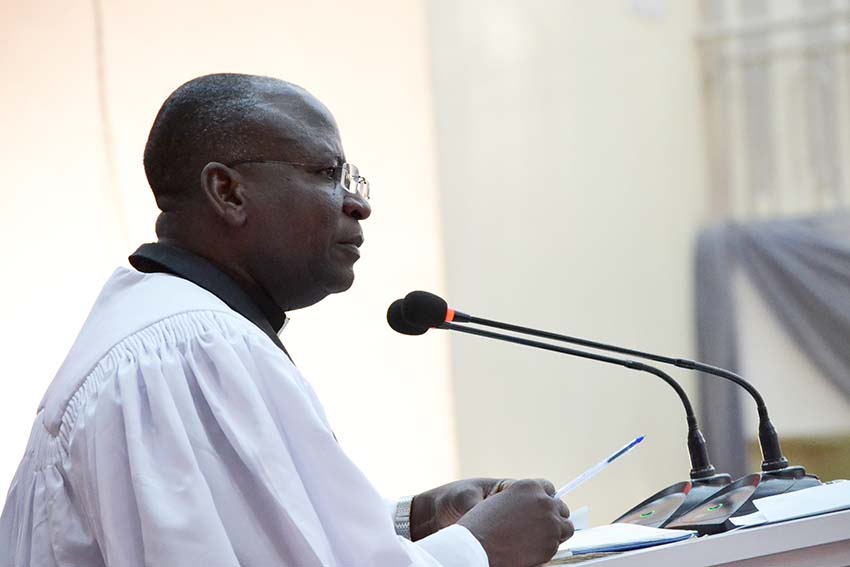
Kwaha shared his grief at the death of a church member who, a few weeks previously, was murdered while working outside the city. Two weeks before our visit, Boko Haram slaughtered some 50 people in the area. Just a few days before, they attacked a camp for IDPs (internally displaced people), killing eight. The camp housed both Muslims and Christians, but Boko Haram attacked indiscriminately. They don’t care who they kill, Kwaha said. Such attacks continue on a regular basis, but the media may not report them—or the death toll among Nigerian soldiers.
Kwaha arrived in Maiduguri two years ago with personal experience of Boko Haram. He was pastoring in Mubi when insurgents overran that area, and he and his family fled. After he was reassigned to Maiduguri, his wife, Victoria, had a hard time sleeping because of the sounds of shooting and bombing.
Kwaha’s job is to oversee the large congregation’s extensive work—still considered EYN’s largest despite having been destroyed in 2009 and rebuilt, and having lost members over intervening, difficult years. In addition to worship services, Bible studies, and small groups, the church supports displaced people, has an AIDS clinic in partnership with international organizations, and sponsors a school. As lead pastor, Kwaha preaches and does weddings, child dedications, and marriage counseling, assigns the duties of assistant pastors, and sets their schedules. Victoria Kwaha is a leader for the women’s groups.
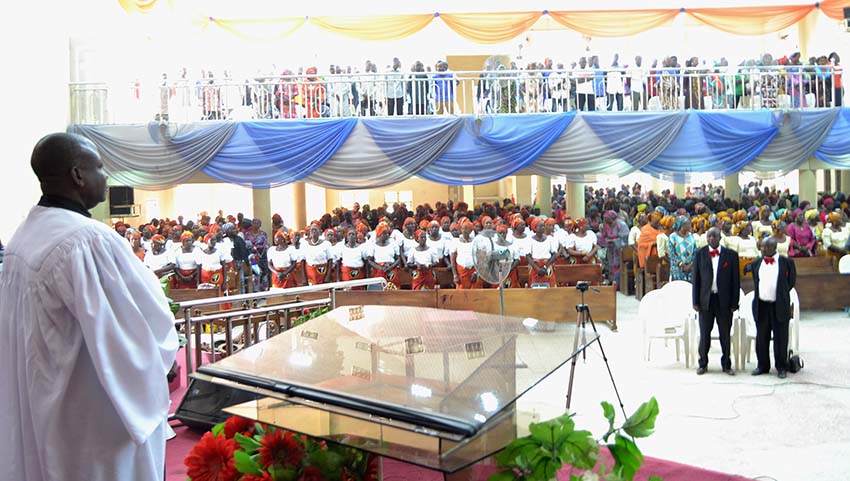
The church and EYN’s Disaster Ministry are supporting IDP camps, the closest just around the corner from the church. The walled compound is filled with rows of shacks built from various materials including UNHCR tarpaulins sent by the United Nations. More than 400 people live there, about 85 percent EYN members. Most are from hard-hit areas like Gwoza, Ngoshe, Barawa, Bama—places considered “no go,” where people cannot return because conditions are too dangerous.
Some people in the camp have been displaced since 2013, including camp chairman John Gwama. His family fled the Boko Haram takeover of Gwoza on foot. Their daughter was slaughtered, he said. His wife ended up in Cameroon. He reached Maiduguri with two of their children. He and his wife were separated for more than a year before she could rejoin him.
The camp receives no help from the government, Gwama said. Their aid comes from international organizations like the United Nations, the EYN Disaster Ministry, the Church of the Brethren, and various EYN congregations. The camp has a source of water. UNICEF provided toilets, but camp leaders have trouble getting the organization to maintain them. Pressing concerns include access to jobs and livelihoods. Most of the IDPs are farmers but they can’t go out of the city to farm and raise food for themselves—it is just too risky. Their greatest need, however, is to go home again. The camp chairman does not understand why the government cannot regain control of Boko Haram-held areas and allow that to happen.
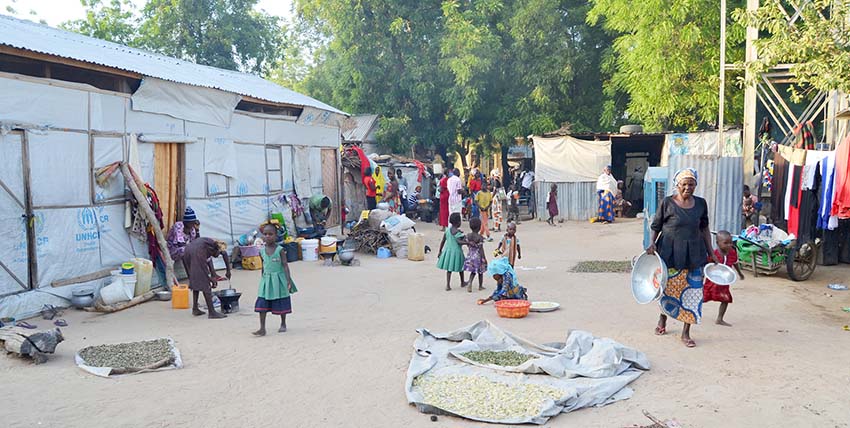
Maiduguri #1 is distributing food in the camps, assigning pastors to them, and paying the pastors’ salaries, Kwaha said. The church has started projects to help with the lack of employment, including a project for widows and orphans and a micro-loan project.
A difficulty for Kwaha and other EYN pastors is that practically every church member has experienced trauma—even the pastors themselves. Sometimes people come to church and “cannot receive the gospel” because of their trauma. Kwaha has seen women in tears during communion and feetwashing because they are missing family members. Some people are still separated from their families. Some families have been displaced to other parts of the country or to Cameroon, where thousands of EYN members are still in refugee camps. In response, Maiduguri #1 has hosted trauma healing workshops and has started a trauma counseling committee of 15 women and men who have received training for the work.
“Our ministry is holistic: preach the word of God, meet the people’s needs, physical and otherwise,” Kwaha said, adding, “The Lord has been helping us. . . . You cannot sit still, you have to do something—gradually, despite the fact that the trauma is still there.”
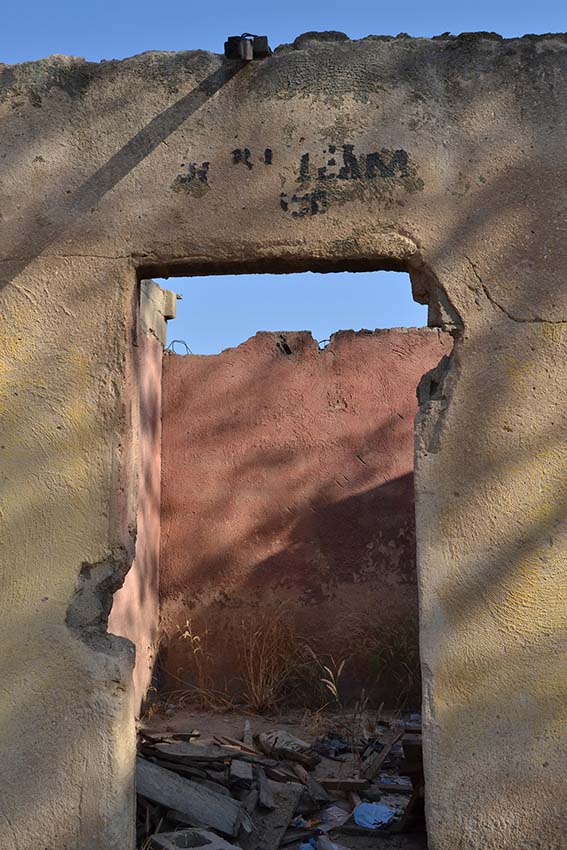
Nigerians wonder about the government attitude toward Boko Haram and the extremist Fulani. One hears conjecture about a shadow conspiracy thought to be using these violent groups to “de-Christianize” the north. To American ears, this enters the realm of paranoia—but the questions remain. Why can’t Nigeria, with its military power and oil wealth, effectively end the violence? Why are some areas allowed to continue under insurgent control?
An Innocent greeting
At the EYN camp for IDPs near Yola, a group of teenagers and twenty-somethings gathered around. We exchanged names—one was named Innocent, another Ezekiel, another Gamaliel. One young man was named Thank God. I shared my name, Cheryl, and it took awhile for Nigerian tongues to master the pronunciation.
They politely asked about my family. Upon meeting someone, one asks after their health and their family. I told them my husband’s name, Joel, and my son’s name, Christopher.
A lively conversation ensued about the meaning of all these interesting names. Someone commented on how many came from biblical prophets. Innocent asked—completely innocently—what his name means in English.
Pure, without sin, always doing good, I said. Another person asked what Christopher means. “Christ-bearer,” I said, telling the old story of Saint Christopher arriving at a river bank and kindly carrying a small child across the water on his shoulders—not knowing it was the Christ.
“Tell Christopher that Innocent is greeting him,” Innocent said.
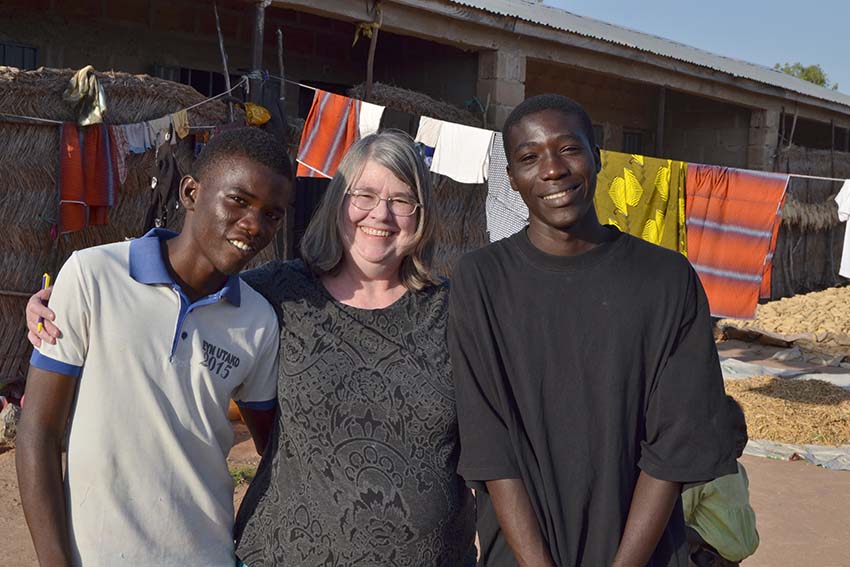
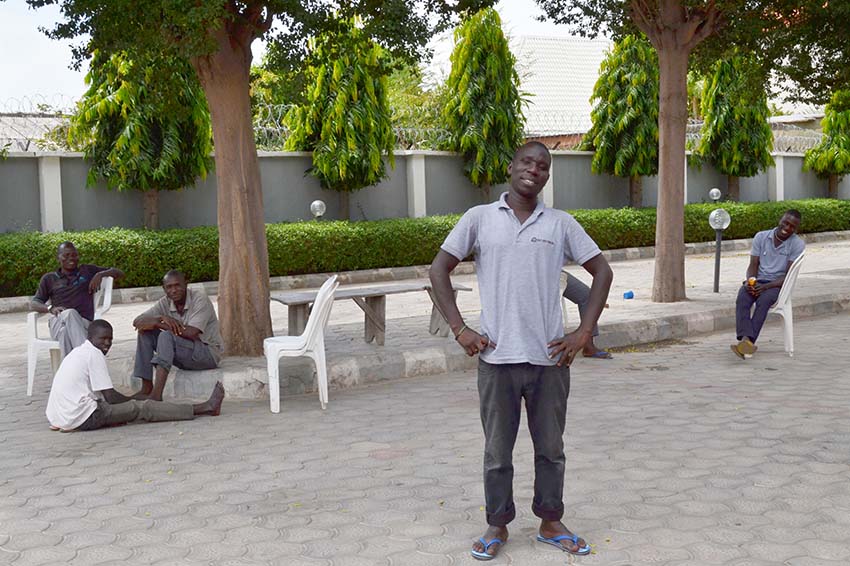
“Tell them that Nigeria is not all corrupt,” said the hotel employee, when he learned he was talking with a church journalist from the US. He was Muslim but he expressed an enthusiastic welcome to an American Christian. He also expressed a realistic knowledge of how Nigeria is perceived internationally and wanted to set the record straight. Nigerians are not all computer scammers and hackers, he said, and they are not all corrupt politicians. There are many good people leading good, honest lives in Nigeria.
After 31 years
Stepping off the plane, I breathed Nigerian air and sank into the comfort of homecoming, despite being in a militarized zone. (Had my first close-up look at an AK-47.)
Remembering things my taste buds had forgotten, how much I like jollof rice and the taste of palm oil, I wished someone would serve kosai for breakfast.(They never did.)
Beginning to distinguish phrases in Hausa, I tried speaking a few words but people laughed. (My accent must be terrible.)
Swaddled in Nigerian graciousness and hospitality, I felt empowered to make attempts at re-entering the culture. (I expect that was awkward for my hosts, too.)
Steeling myself to hear the stories of people who have suffered more than I can imagine, I was unprepared to feel shame that the first time I cried was for my own loss. (We visited the last house my parents lived in before my mother died.)
Knowing that women in Nigeria struggle for basic rights, I was nevertheless hit hard with a new realization that segments of the country think women are property. (I have seldom been so angry.)
Leaving Nigeria on an overnight flight, I was surprised by tears that fell through the darkness. (My thoughts were with the young child—homeless? orphaned?—I had seen sleeping in the dirt on the side of a road.)
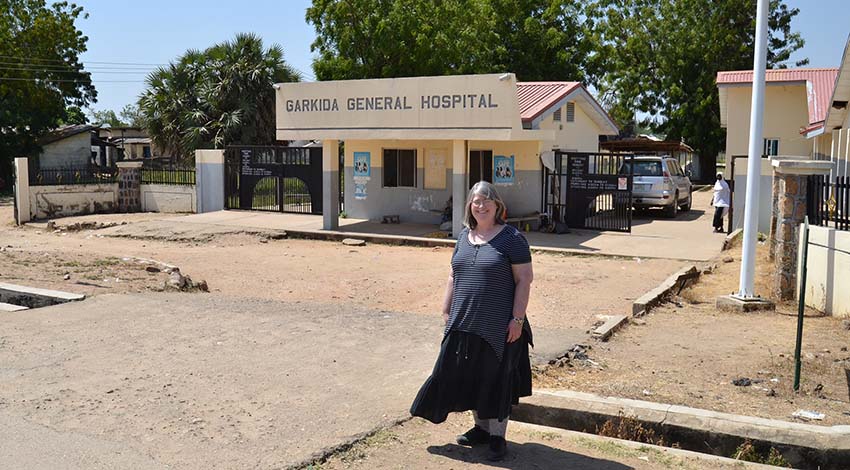
How to support EYN and Church of the Brethren work in Nigeria
Give to the Nigeria Crisis Response
Cheryl Brumbaugh-Cayford is director of News Services for the Church of the Brethren, and associate editor of Messenger magazine. She is an ordained minister and a “missionary kid” who was born and grew up in Nigeria. She holds degrees from the University of La Verne, Calif., and Bethany Theological Seminary where she earned a master of divinity with a peace studies emphasis.


